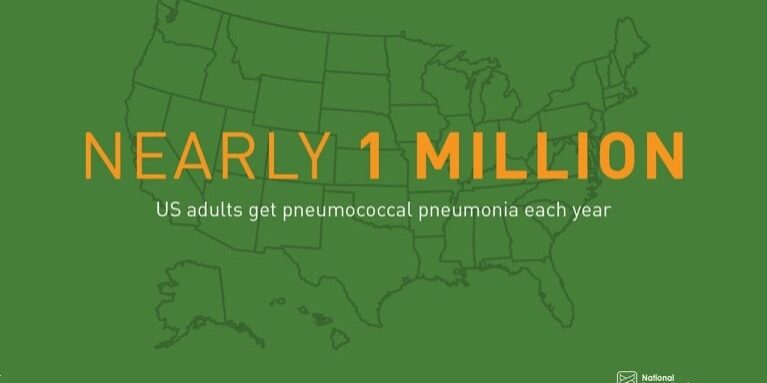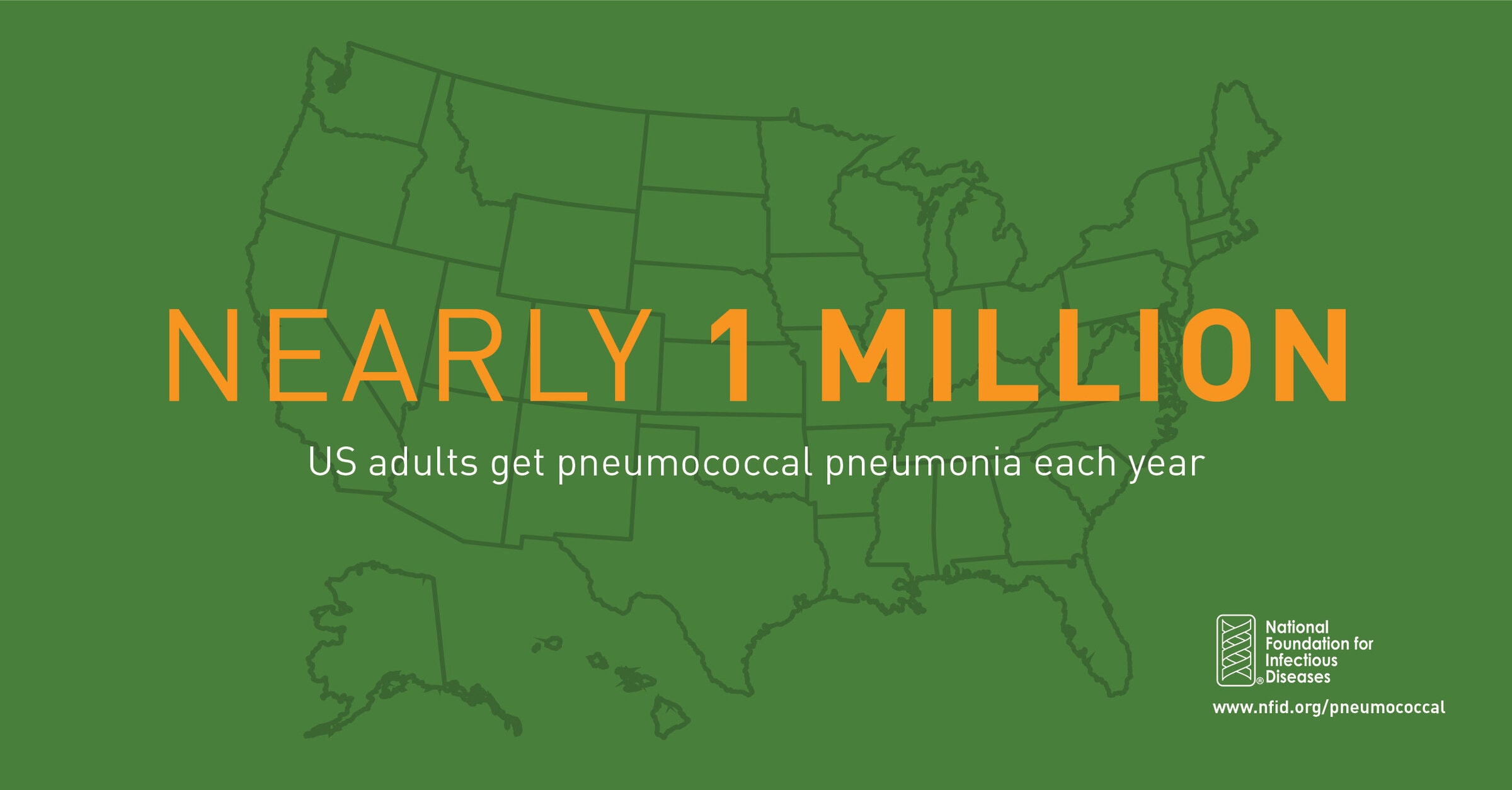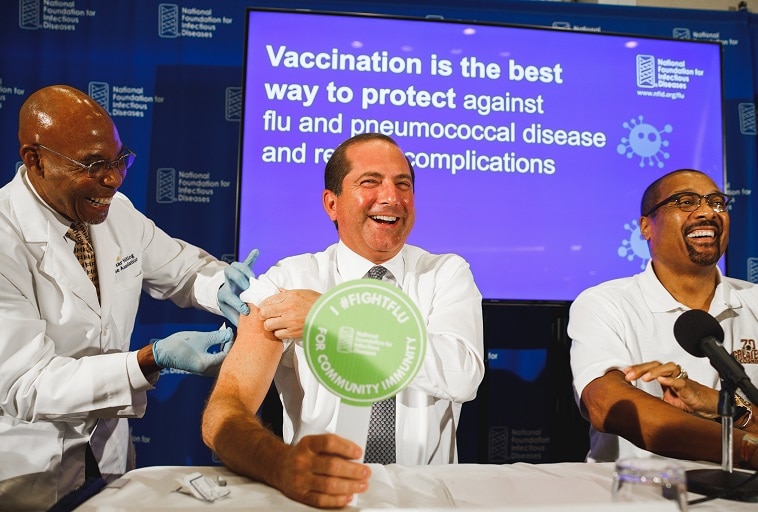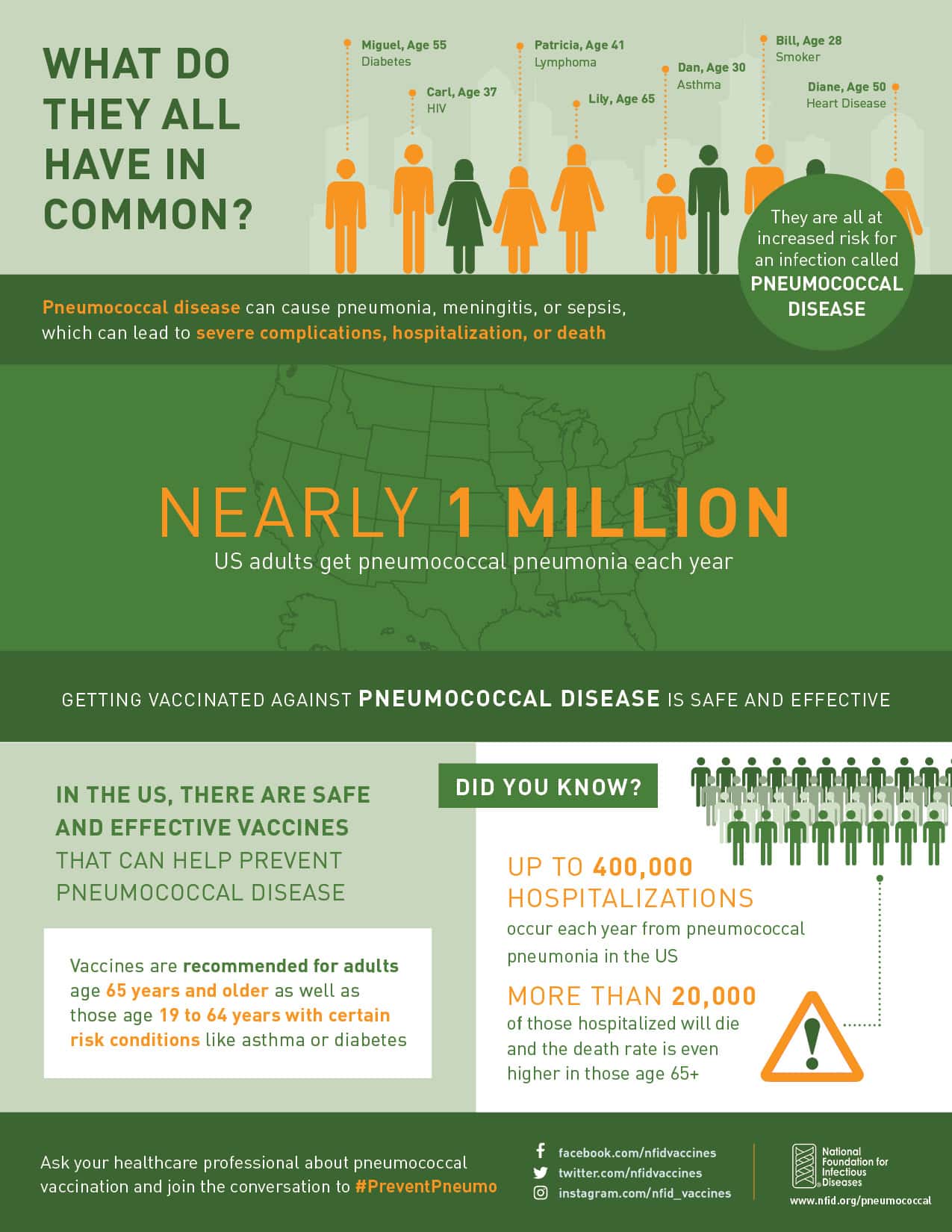
 World Pneumonia Day, held annually on November 12, was established to raise awareness of pneumonia and the importance of prevention and treatment of the disease.
World Pneumonia Day, held annually on November 12, was established to raise awareness of pneumonia and the importance of prevention and treatment of the disease.
There is clearly a need for greater awareness. A recent survey of US adults by the National Foundation for Infectious Diseases (NFID) found that 46 percent of those at high-risk were unfamiliar with pneumococcal disease and nearly 60 percent of high-risk individuals reported that they had never been advised to get vaccinated against pneumococcal disease. Not surprisingly, 70 percent of individuals at high-risk for pneumococcal disease said they were not planning to get vaccinated. We must do better to protect vulnerable adults.
In honor of World Pneumonia Day, here are 7 things you need to know about pneumococcal disease:
- Pneumococcal disease is a leading cause of serious illness throughout the world. In the US, nearly 1 million adults get pneumococcal pneumonia each year, up to 400,000 hospitalizations occur from pneumococcal pneumonia, and more than 20,000 of those hospitalized will die. The death rate is even higher for adults age 65 years and older.
- Pneumococcal disease is caused by a common type of bacteria, Streptococcus pneumoniae (S. pneumoniae) or pneumococcus, which can attack different parts of the body. The bacteria can spread through droplets in the air when a person with the infection coughs or sneezes.
- Pneumococcal disease can cause pneumonia, meningitis, and sepsis (bloodstream infection), which can lead to severe complications.
- Pneumococcal disease can strike quickly and without warning. Depending on whether the infection causes pneumonia, sepsis, or meningitis, individuals may experience some combination of the following: very sudden onset of high fever, chills, cough, shortness of breath, chest pain, stiff neck, and disorientation. Symptoms may be less specific in older adults, who may experience confusion or lack of alertness.
- There are two types of pneumococcal vaccines currently recommended in the US: pneumococcal conjugate vaccine (PCV13) and pneumococcal polysaccharide vaccine (PPSV23).
- Vaccination helps protect against pneumococcal disease and related complications. Vaccination reduces the chances of becoming infected with pneumococcal bacteria and is associated with improved survival, reduced chance of respiratory failure or other complications, and shorter in-patient stays for adults hospitalized with community-acquired pneumonia caused by pneumococcal disease.
- Pneumococcal vaccines are recommended for routine use in children and for many adults including adults age 65 years and older, and those age 19 to 64 years with certain chronic health conditions like asthma or diabetes.
Influenza (flu) season is an appropriate time to have a conversation with your healthcare professional about pneumococcal disease, as both vaccines can be given at the same time. To learn more about pneumococcal disease, visit www.nfid.org/pneumococcal. Help raise awareness about pneumococcal disease and vaccines available to help #PreventPneumo by sharing NFID resources, including a fact sheet, infographic, and holiday memes.
To join the conversation and get the latest news on infectious diseases, follow NFID on Twitter using the hashtag #PreventPneumo; like us on Facebook; follow us on Instagram; join the NFID LinkedIn Group; and subscribe to receive future NFID Updates.
Related Posts

Leading By Example To Help #FightFlu & #PreventPneumo
US Secretary of Health and Human Services Alex M. Azar II led by example at the 2019 NFID Annual Influenza/Pneumococcal Disease News Conference in Washington, DC to urge everyone age 6 months and older to get vaccinated against flu each year

